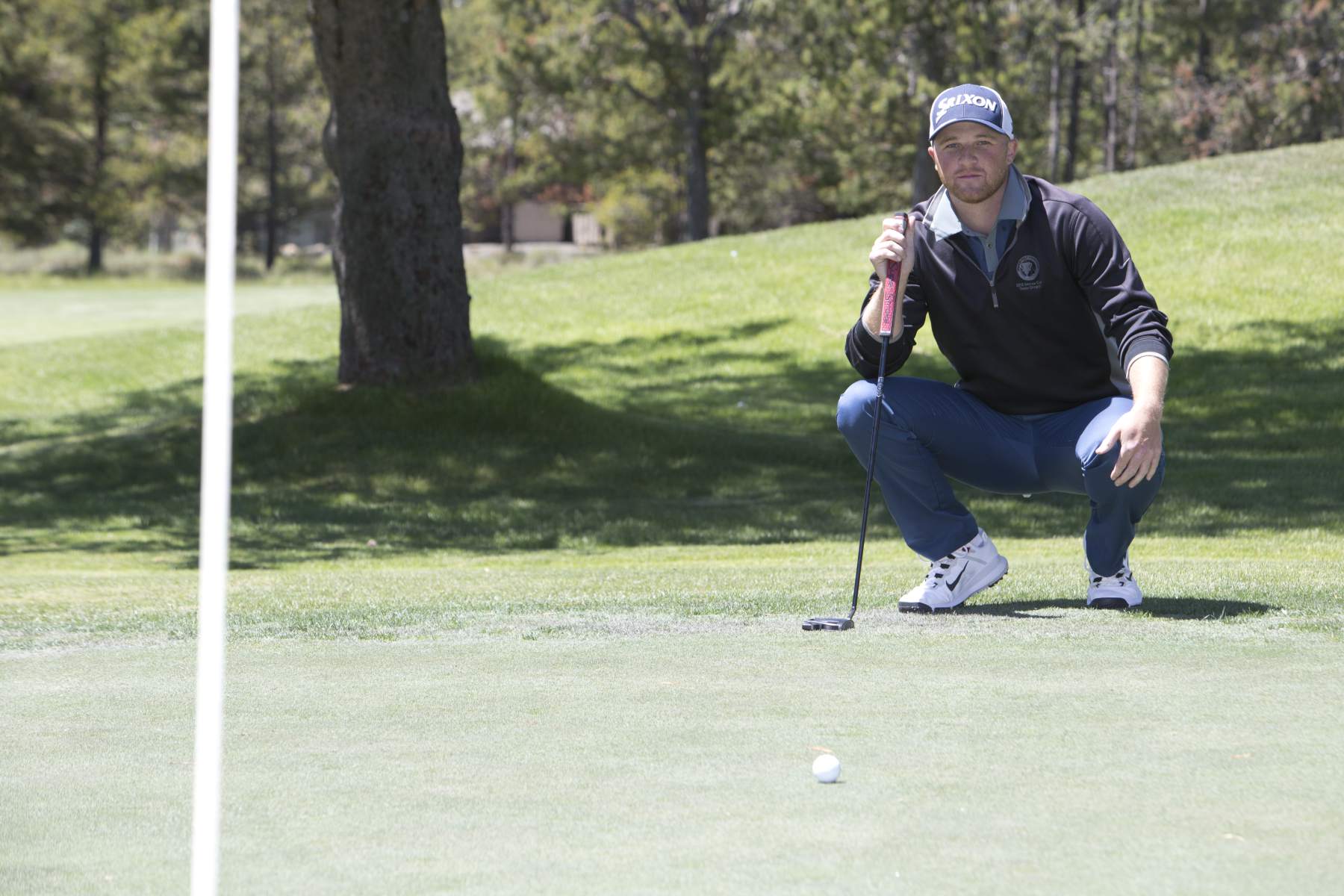**Originally Published by BendBulletin.com on June 5, 2018 at 09:20PM | VIEW ORIGINAL LINK
Jesse Heinly was certain this go-round would be different. He was now a playing professional competing in his third U.S. Open sectional qualifier with another chance to earn a spot in the second major golf tournament of the PGA Tour season.
At just 26 years old, Heinly has developed the poise of a pro: calm, loose, not appearing as though “I’m taking things too seriously.”
The Summit High graduate was just a kid during his first two trips to the sectional qualifier, although both of those tournaments were within the past five years. Now, Heinly was a veteran. He gained an understanding of what can be described as the ripple effect in golf, wherein the tiniest pebble can create mountainous waves.
“A lot of people don’t even realize that, when you’re playing a round, you might think you’re comfortable and playing well, but these little thoughts can creep up in the back of your head, subconsciously,” Heinly said last week. “Those are really the biggest difference in how you play. … It’s not a big difference in terms of what you’re thinking. But it makes a huge difference when you’re playing. It’s really just a small mindset, but it has a huge effect.”
A former collegiate golfer at Xavier of Cincinnati and Concordia of Portland, Heinly was primed to make a run at qualifying for the U.S. Open this past Monday at Portland Golf Club. All he needed was a solid 18-hole score in the morning and a strong 18-hole card in the afternoon.
“I’m a lot more confident now and way more experienced,” he said, looking ahead to the sectional. “I think this course fits my game a lot more. It’s a huge difference. The first two times, I was just kind of happy to be there. I thought it would be awesome to play well, but this time, I have expectations to play well and make it to the U.S. Open.”
That goal, however, will have to wait another year. As only the top four in the 79-player field would qualify for the June tournament at Shinnecock Hills Golf Club in New York, the cards were a bit stacked against Heinly on a partly cloudy Monday. In 2013, he finished 25 strokes off the last qualifying spot; in 2015, he finished just 12 shots out. On Monday, though, Heinly carded an 8-over-par 79 in the morning round and followed with an improved 3-over 74 in the afternoon. At 11 over par over 36 holes, Heinly, one of just four Oregon players in the field, finished in a tie for 68th and 14 strokes behind the final qualifying spot.
“I know I was playing good golf before that, so it was definitely frustrating,” Heinly said after Monday’s qualifier. He was one of 500 players nationwide to advance out of a field of 8,537 players at local qualifiers. He tied for third in a local qualifier at Riverside Golf & Country Club in Portland on May 7 to move on to sectionals. Heinly said he has also been battling a chronic right knee injury, which was exasperated after he re-injured the knee while snowboarding this past winter.
By no means, though, does that sectional qualifying performance affect Heinly’s mindset. Rather, it has fueled his drive.
“I’m pretty fired up. I know I shouldn’t be playing like that. I think the injury got to me a little bit more than it should have,” said Heinly, who planned to head to Canada for a tour qualifier later this week. “But the rest of this week I’ll be out practicing and playing and trying to figure out a way to get back to playing my game and get back to the comfortable state I’ve been playing in the last month or so.”
Heinly still has a future to consider. In the week leading up to the sectional qualifier, he was unsure how much downtime he would have to practice. He has earned conditional status with Mackenzie Tour-PGA Tour Canada and was on the wait list to compete at the Freedom 55 Financial Open in Vancouver, British Columbia, which was scheduled for May 31-June 3. Heinly made preliminary plans to play in Canada until Sunday night and then speed down to Portland for the 36-hole U.S. Open qualifier.
While Heinly did not gain entry into the PGA Tour Canada event, he still has conditional status with the tour.
“That’s the mentality: When you have a bad (tournament), oh well,” he said. “There’s nothing you can do about it now. You still have more events to play. The worst thing I can do is sulk over it. Even though it was an important one … the only thing I can do now is get ready for the next one.”
This is a different era for Heinly. At Summit, he was a two-time top-three finisher at the Class 5A state championships. As a sophomore at Concordia, he was the second player in program history to play at the NAIA national championships (he tied for seventh at nationals two years later) and was named the Cascade Collegiate Conference player of the year after averaging a program-best 72.6 strokes per round.
The next step for Heinly came last year, when he became a playing professional. The new era began — and continues — for the Bend golfer.
“I think the biggest difference when I turned pro was I wasn’t exactly playing on my own dime,” Heinly said. “It was with (sponsors’) money, That was kind of a tough mindset to get by at first. You get these ideas in your head that, ‘I’m pro now, I have people wanting me to do well. It’s time to take it seriously.’ You overthink a lot of things. That’s just too much more pressure to put on yourself, so you’re not playing the game that you know got you there.”
Heinly noted, however, that those thoughts cannot creep into his mind, lest added stress be piled on his shoulders. Instead, he said, “you’re also just playing your game but not thinking about those expectations while you play. It’s kind of just ingrained in you already.”
“You’re playing for real money now, not just pro shop credit,” he chuckled. “It’s different, but at the same time it’s fairly similar. It’s just getting ready for a tournament like I have been doing for the last 12 years of my life.”


